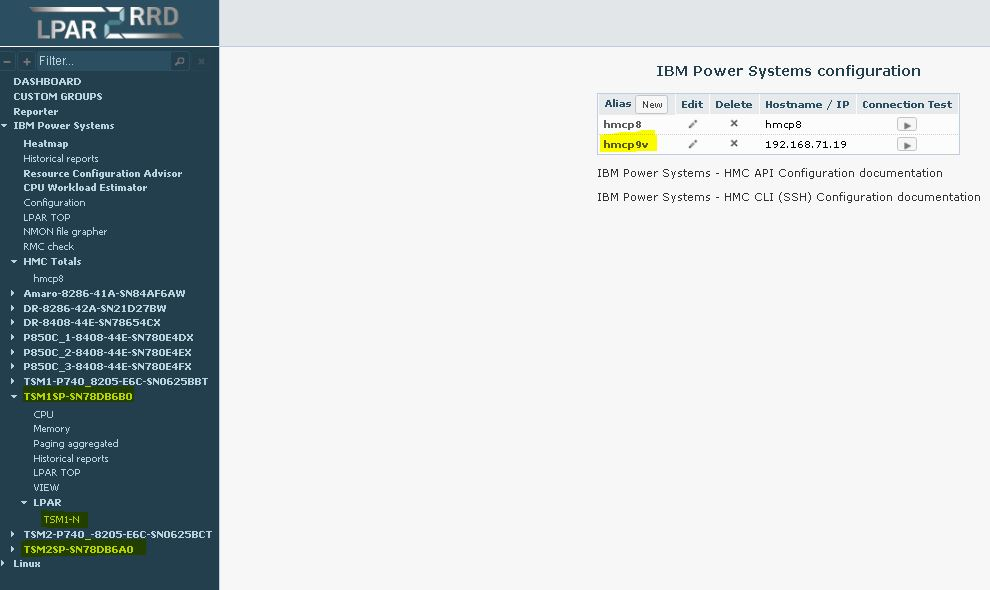new hmc not displayed in "HMC Totals"
Hello sirs,
I've added to my lpard2rrd installation (7.10) a new hmc IBM (hmcp9v) but it is not listed in "HMC Totals" where I find only the old one (hmcp8).
The connection test display all ok , and the two ibm servers connected to this new hmc are present on the dashboard and their data and lpars are collected fine (see yellow highlighted lines in attached image).
is correct this behavior ?
I've added to my lpard2rrd installation (7.10) a new hmc IBM (hmcp9v) but it is not listed in "HMC Totals" where I find only the old one (hmcp8).
The connection test display all ok , and the two ibm servers connected to this new hmc are present on the dashboard and their data and lpars are collected fine (see yellow highlighted lines in attached image).

is correct this behavior ?
Comments
-
Hi,
it will appear after some time in GUI. Let us know if it won't appear in 24 hours.
Jan Dvorak
-
Hello Jan,
I've added it almost 4 days ago.
Lorenzo Peinkhofer -
Hello Jan,
if it can help now I have seen that the new hmc is not present on the /etc/hosts file of the aix lpar2rrd server (where there is the old one). Perhaps is required ?
Best regards. -
Hi,
cd /home/lpar2rrd/lpar2rrd;#or your LPAR2RRD dir
ls -l data/*/*/config.html;
tar cvhf logs.tar logs tmp/*.txt tmp/*.json;
gzip -9 logs.tar;
Send us current logs.tar.gz via https://upload.lpar2rrd.com
-
Hello Jan,
upload done (two files: tar log and trace of commands ) !
Best regards -
hello Sirs,
have you found something in the logs ?
Regards -
Hello Sirs,
today I've upgraded to 7.20 and now all work fine , both hmc are now displayed correctly in the gui whit assigned lpars.
SOLVED !
Regards
Howdy, Stranger!
Categories
- 1.7K All Categories
- 116 XorMon
- 26 XorMon Original
- 175 LPAR2RRD
- 14 VMware
- 20 IBM i
- 2 oVirt / RHV
- 5 MS Windows and Hyper-V
- Solaris / OracleVM
- 1 XenServer / Citrix
- Nutanix
- 8 Database
- 2 Cloud
- 10 Kubernetes / OpenShift / Docker
- 140 STOR2RRD
- 20 SAN
- 7 LAN
- 19 IBM
- 7 EMC
- 12 Hitachi
- 5 NetApp
- 17 HPE
- 1 Lenovo
- 1 Huawei
- 3 Dell
- Fujitsu
- 2 DataCore
- INFINIDAT
- 4 Pure Storage
- Oracle
